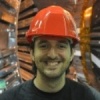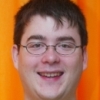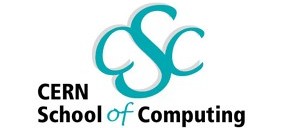|
Presentations by Students
Students are
invited to propose a topic they would be interested in
presenting, during a special one-hour session to take place
the second Tuesday afternoon. Those
selected will be invited to give a short presentation (in
the order of 5 to 10 minutes maximum).
The
presentation, in particular if short, would not
necessarily require presentation material (such as
PowerPoint slides)
The choice of topic is free but
should be related in some way to the school. Examples, you
may briefly talk about:
Note: if you
are presenting in a group, please select one of you to use
the login and password and write the names of all members of
the group in the description.
Selected proposals and final programme
CSC
|
Tuesday 25 September, 16:15
All 5 proposals
received before the deadline, have been
accepted. The programme is therefore as follows:
All presentations will last
10 minutes maximum A mentor is associated to each
presentation to briefly discuss the topic with the presenters and
to review their slides.
|
Name |
Title |
Description |
Mentor
|
|
Juan Manuel
Caicedo Carvajal

|
Screen: The Swiss knife for remote sessions
(view the slides)
|
We spend days and nights using remote SSH sessions
and dealing with annoying problems like
disconnections, multiple windows, repetitive tasks,
etc... GNU Screen is a 'terminal multiplexer' which
allows you to run multiple applications
simultaneously within a single terminal. It also
includes handy features for making the day-to-day
work easier, like session sharing and reconnection.
This presentation will describe how to use screen
and its most important benefits.
|
Alberto Pace
|
|
David
Horat
 |
Response Time Optimization in Web Applications
(view the slides) |
Response time in web applications is one of the most
important issues today. The whole stack of
intermediate software we use to deliver web
interfaces added to the increasing popularity of web
services make web applications very slow. In this
short presentation we will give an overview of the
stack of technologies used nowadays in web
applications. Then we will present one or two
example methods and we will apply them to a concrete
webpage to see the reponse time improvement. |
Alberto Pace
|
|
Luis
Fernando
Munoz
Mejias
|
Improving the traceability of your code while
keeping it clean
(view the slides) |
Debuggers just can't solve all problems. Sometimes
we need information about what's going on in our
software while it is in production, and we need this
information separated from the real output of our
program. The usual approach of flooding the code
with print statements makes uglier, and the messages
are often inconsistent. I'd like to explain briefly
what alternatives we have on different languages and
platforms, focusing mainly on the use of syslog, and
log4XXX |
Ivica
Puljak
|
|
Malte
Nuhn
 |
What does my machine really do? - Using Systemtap to
analyze performance and functional problems
(view the slides) |
SystemTap provides free software (GPL)
infrastructure to simplify the gathering of
information about the running Linux system. This
assists diagnosis of a performance or functional
problem. SystemTap eliminates the need for the
developer to go through the tedious and disruptive
instrument, recompile, install, and reboot sequence
that may be otherwise required to collect data. I
will give a short overview on Systemtap and will
present how it can be used to profile and analyze
grid-jobs. |
Bernd Panzer Steindel
|
|
Markus
Osterhoff
 |
MPI on a non-
dedicated "cluster"
(view the slides) |
After a short outline on my topic (wave-optical
simulations in the x-ray regime) we will have a look
at not-so-performant parallelization on a highly
visited set of computing nodes, the ESRF coral |
Ivica Puljak
|
|
|

